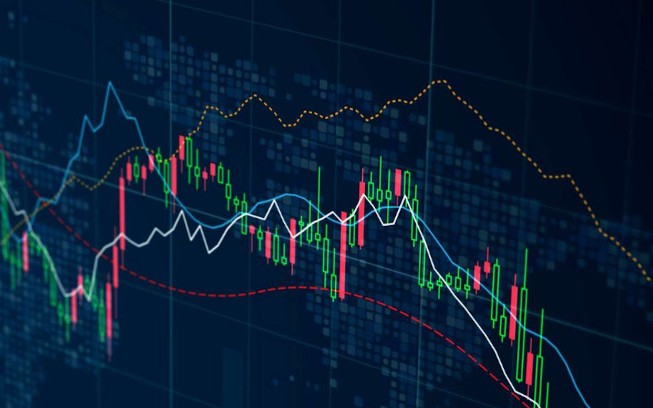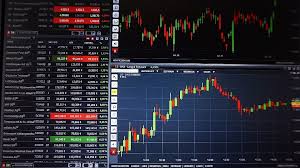
Forex trading, or foreign exchange trading, is the process of buying and selling currencies in the global market. It is one of the most liquid and accessible financial markets, offering immense opportunities for traders. For those looking to delve into the world of forex trading basics https://forex-level.com/, understanding the basics is crucial for success.
What is Forex Trading?
Forex trading involves the exchange of one currency for another on a decentralized market. Unlike stock trading, which has a centralized exchange, Forex operates over the counter (OTC), meaning that transactions occur through electronic networks between traders around the world.
How Forex Trading Works
In Forex trading, currencies are traded in pairs, with one currency bought and the other sold simultaneously. Each currency pair has its own price, which fluctuates based on supply and demand influenced by various factors, including economic data, geopolitical events, and market sentiment.
Currency Pairs
Currency pairs are categorized into three main types:
- Major pairs: These include widely traded currencies like the Euro (EUR), US Dollar (USD), British Pound (GBP), and Japanese Yen (JPY).
- Minor pairs: These pairs include currencies that are less commonly traded, such as the Australian Dollar (AUD) and Canadian Dollar (CAD).
- Exotic pairs: These consist of a major currency paired with a currency from a developing economy, like the USD/TRY (US Dollar/Turkish Lira).

Understanding Quotes
Each currency pair's price reflects how much of the second currency is required to purchase one unit of the first currency. For example, if the EUR/USD quote is 1.2000, it means that 1 Euro can be exchanged for 1.20 US Dollars. The first currency in the pair is known as the base currency, while the second is called the quote currency.
Market Participants
The Forex market is composed of various players, each serving different purposes:
- Central Banks: They control monetary policy and influence their country's currency value through interest rates.
- Financial Institutions: Banks and hedge funds participate to hedge risk or speculate on currency movements.
- Corporations: Businesses involved in international trade use Forex to manage currency risk and facilitate transactions.
- Retail Traders: Individual traders who participate in the Forex market looking for profit opportunities.

The Importance of Leverage
Leverage is a double-edged sword in Forex trading. It allows traders to control larger positions than their initial investment. For instance, with 100:1 leverage, a trader can control $100,000 in currency with only $1,000. However, while leverage can amplify gains, it can also magnify losses, making risk management critical in trading.
Margin Explained
Margin is the amount of money required to open a leveraged position. It serves as a security deposit to cover potential losses. Understanding how margin works helps traders manage their accounts effectively and avoid margin calls, which occur when account equity falls below the required minimum.
Analyzing the Forex Market
Successful Forex trading often relies on powerful analysis techniques:
- Fundamental Analysis: Involves examining economic indicators, interest rates, and other economic data to determine the strength of a currency.
- Technical Analysis: Focuses on historical price movement and patterns using charts and indicators to predict future price movements.
- Sentiment Analysis: Gauges the overall mood of the market to determine whether traders are bullish or bearish on a currency pair.
Forex Trading Strategies
There are various strategies Forex traders use to maximize profits:
- Scalping: A short-term strategy that focuses on small price changes, often executed within seconds to minutes.
- Day Trading: Involves opening and closing trades within the same day to capitalize on intraday movements.
- Swing Trading: This strategy holds positions for several days or weeks to benefit from anticipated price movements.
Choosing a Forex Broker
Selecting the right Forex broker is a crucial decision that can influence trading success. Consider the following factors when choosing a broker:
- Regulation: Ensure the broker is regulated by a reputable authority to guarantee a level of protection.
- Trading Platform: Look for an intuitive trading platform with essential tools and features.
- Spreads and Fees: Compare the costs associated with trading to ensure they are competitive and transparent.
- Customer Support: Quality customer service can be invaluable, especially for beginners.
Risk Management in Forex Trading
Effective risk management strategies are vital for protecting your capital:
- Stop-Loss Orders: Automatically close a position when it reaches a specific loss level, limiting potential losses.
- Position Sizing: Determining the appropriate amount of capital to risk on a trade based on your account size and risk tolerance.
- Risk-to-Reward Ratio: Aim for trades where the potential reward outweighs the risk taken.
Conclusion
Forex trading can be a rewarding venture for those willing to invest the time and effort to learn the basics. By understanding how the market operates, employing sound analysis techniques, and managing risks effectively, traders can enhance their chances of success. As you embark on your Forex trading journey, remember to continually educate yourself and stay updated with market changes, as this will be crucial to your long-term profitability.
